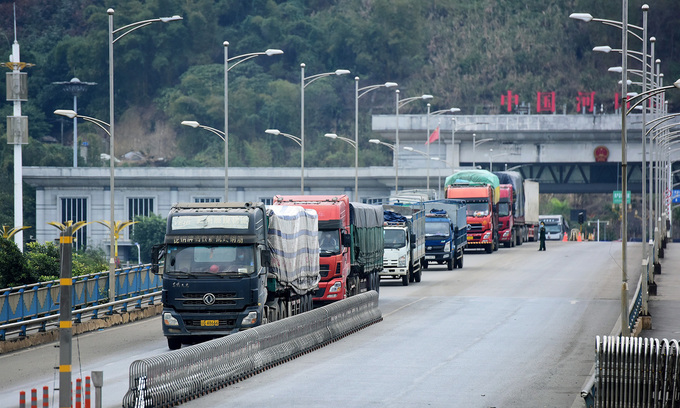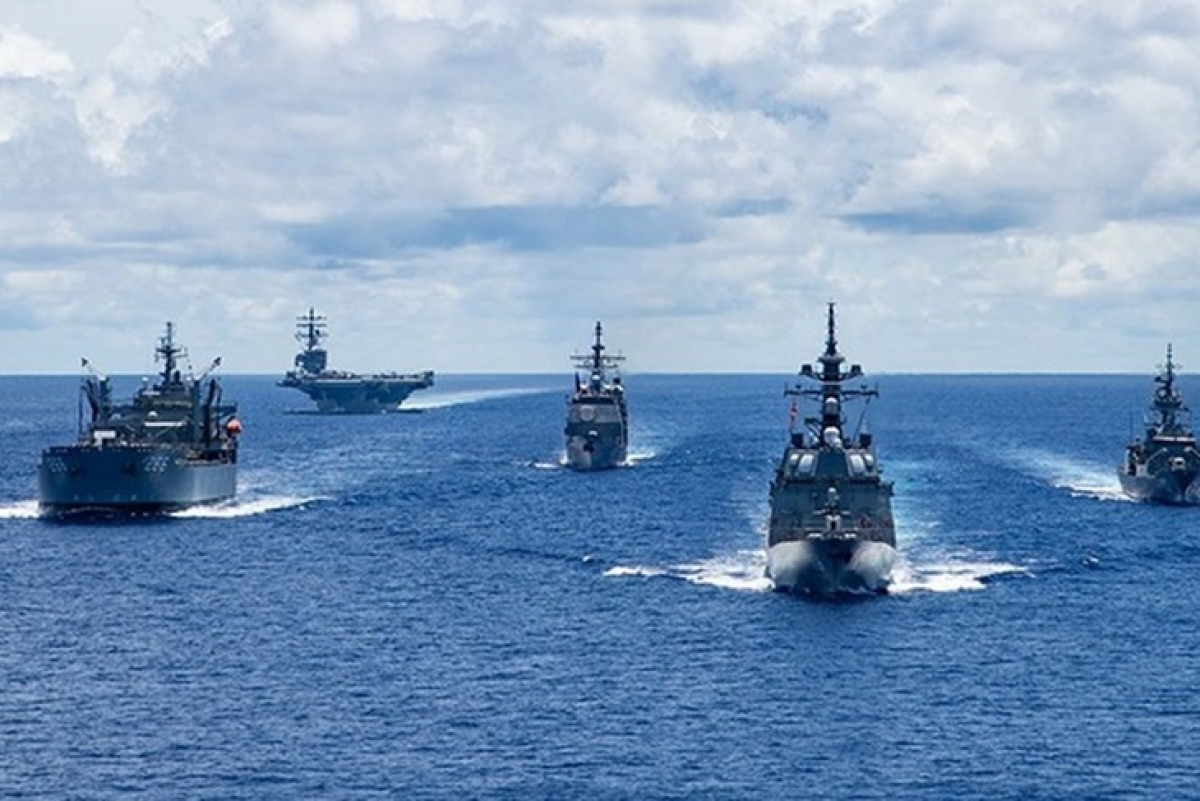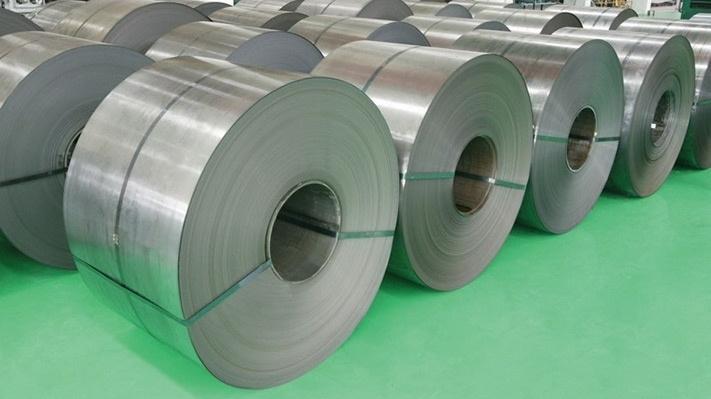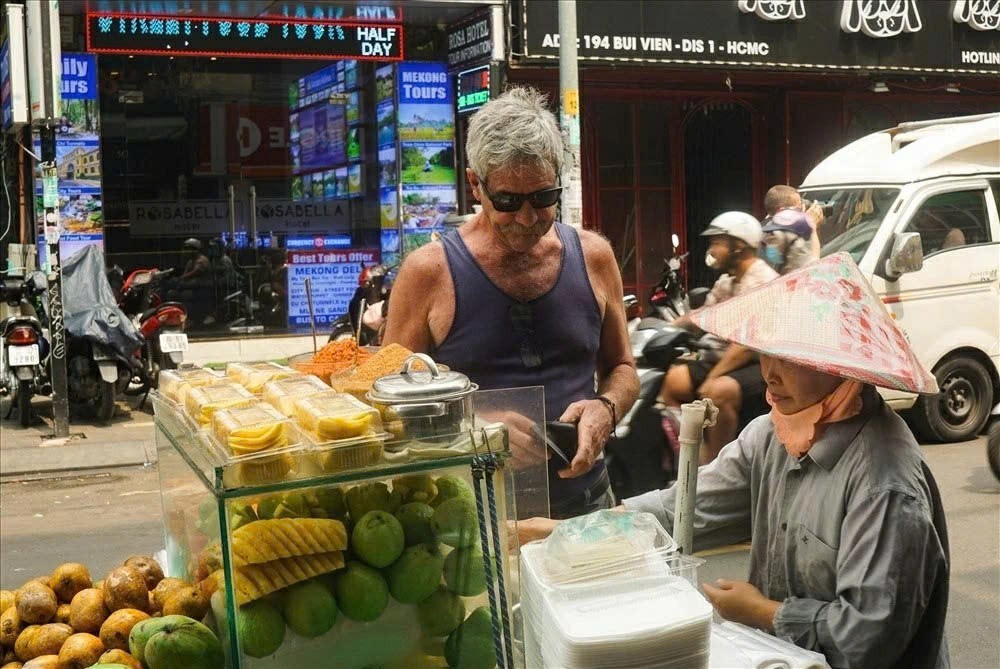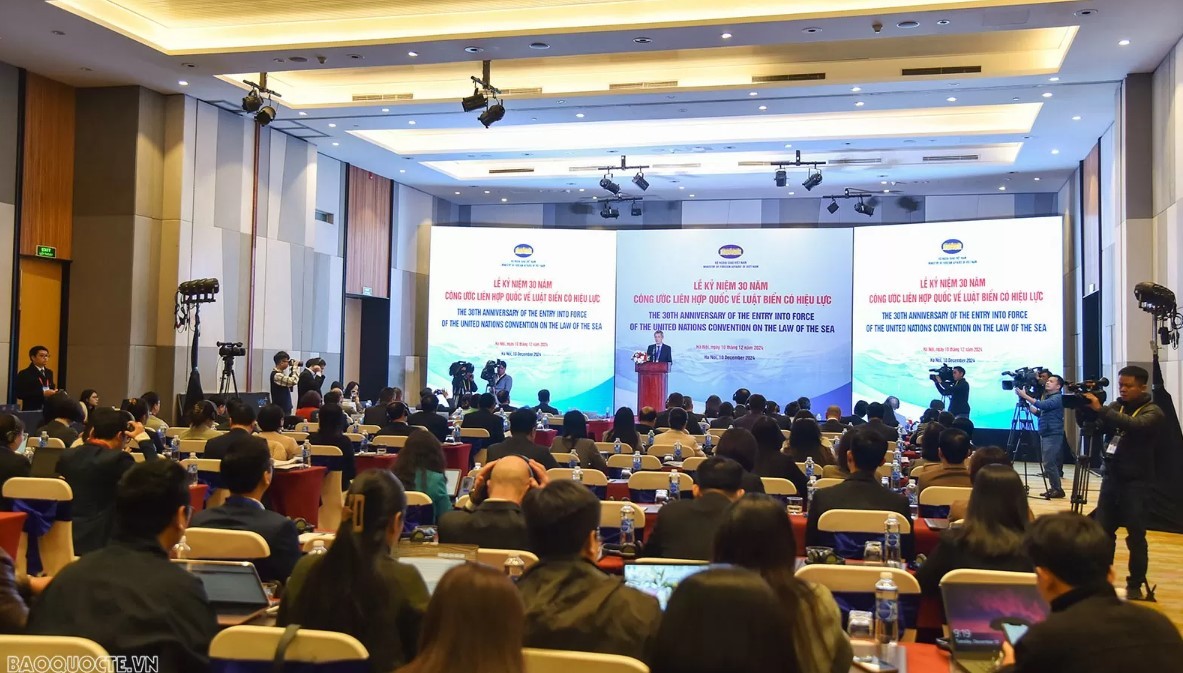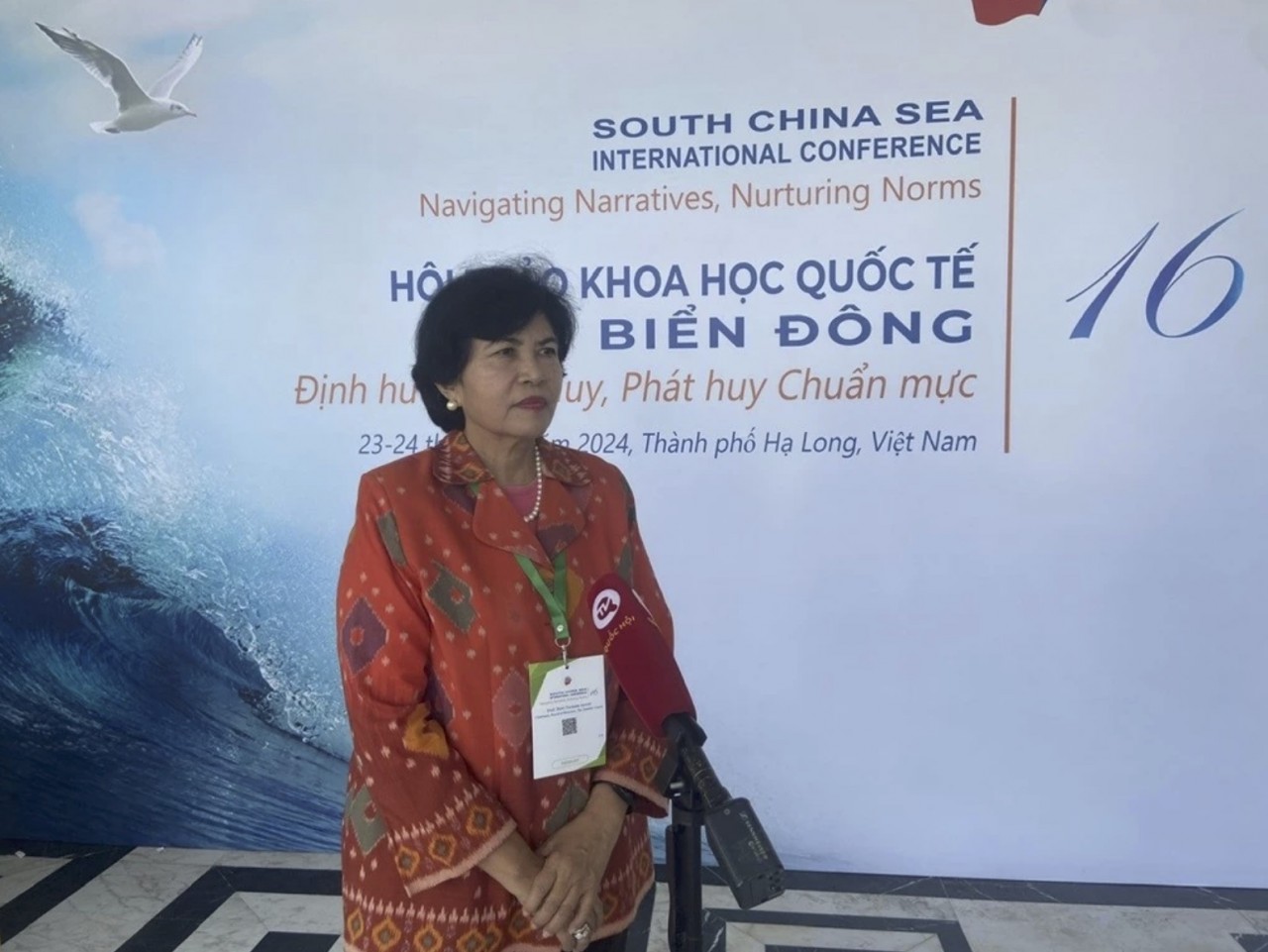China to launch new maritime law: Is it time to sue the power to IJC?
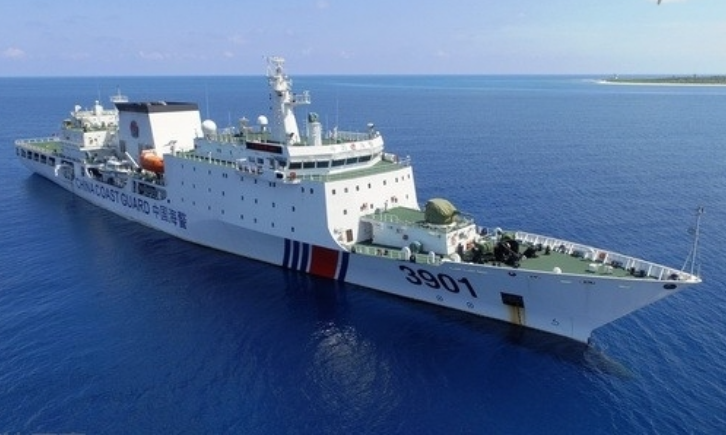 |
| A ship of China Coast Guard. (Photo: Sina) |
China Coast Guard - The largest coast guard force worldwide
China has built up the largest coast guard force in the world. Many of China's coast guard vessels now outnumber the largest of the region's smallest naval forces. For example, the Zhaotou-class vessel of the Chinese Coast Guard weighs 12,000 tons. It is the largest ship in the world built for such a purpose. The deck is wide enough to accommodate 2 helicopters, a 76mm cannon, and an arsenal of weapons. China has 2 ships of that kind, one of which is deployed on the east coast.
China's newest ship, CCG 3901 (short for "China Coast Guard"), entered service in 2017 during its first patrol in the Bien Dong Sea (South China Sea), which is the area where this vessel currently operates. The operation of this giant ship aims at backing up the country's claims in the area.
China uses the Coast Guard not only to enforce conventional maritime laws such as arresting smugglers but also to show off its strength. In 2019, when China sent the Hai Duong 8 vessel to the exclusive economic zone (EEZ) of Vietnam, a fleet of marine police ships was assigned to assist, including CCG 3901. Some Chinese ships even prevented the Vietnamese coast guard from approaching the vessel.
In April 2020, when Hai Duong 8 was sent to Malaysian waters, CCG 3901 was also sent again. A report released by the Center for Strategic and International Studies in Washington in 2019 states that 14 Chinese marine police vessels patrolled the disputed entities in the Bien Dong Sea broadcasting their position on the automatic identification system - an international ship tracking network, to demonstrate a clear and frequent presence of China.
| This maritime bill gives the Chinese Coard Guard forces the power to use weapons when China's sovereignty and jurisdiction are illegally infringed on or facing the danger of being illegally infringed by foreign organizations or individuals. The draft also states that artificial islands that China has reclaimed, renovated, and built on the Bien Dong Sea (including 7 entities in the Spratly archipelago and some entities in the Paracel Islands under Vietnamese sovereignty) belong to the protection of the Coast Guard. |
In the Bien Dong Sea, this year, the Coast Guard ships have had a record number of active days near Senkaku/Diaoyu. In October, two Chinese ships entered the archipelago's territorial waters (less than 12 nautical miles from shore) and stayed for more than 39 hours compared to the previous record.
The Chinese Coast Guard is sometimes mobilized to support China's "maritime militia", which includes armed fishing vessels that it is used to establish its presence in disputed waters. In April 2020, China's Coast Guard sank a Vietnamese fishing vessel near Vietnam's Hoang Sa archipelago. This is the second time that such an incident happened in this area in less than a year.
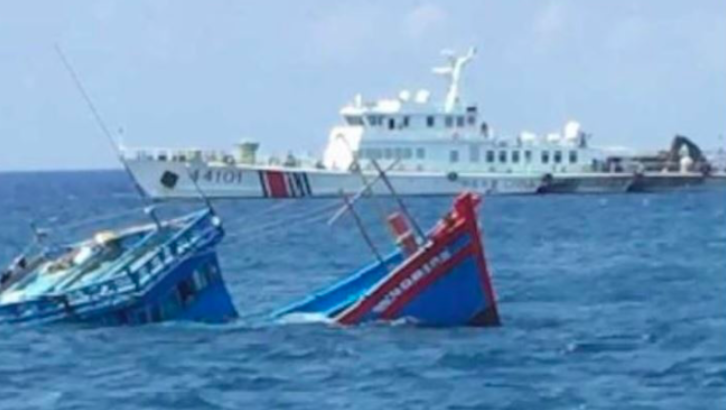 |
| Chinese coastal ship crashed fishing vessel QNg 90617 TS in April 2020 in the waters of the Hoang Sa archipelago of Vietnam. |
Chinese's Gunboat diplomacy
Many countries, including the US, concern about the growing role of the Chinese Coast Guard in enhancing their maritime power. In 2019, a US admiral hinted that, in the event of a collision, the US Navy would treat ships belonging to the Chinese Coast Guard and Militia in the same as those of the country's navy ships.
With the upcoming announcement of such a new maritime law, it is like an act of "escalation" and will turn security in the Bien Dong Sea region into a more tense and unstable state in the coming time.
In the framework of the recent international conference on the Bien Dong Sea, some Chinese scholars said that this was an internal issue of China and that Beijing always pursued a traditional policy of friendship with neighboring countries in the Bien Dong Sea issue. However, there raised a question that whether Beijing pursues a policy of "gunboat diplomacy" or "traditional friendship"?
"Gunboat diplomacy" means the display of military strength and thereby achieving foreign policy objectives, such as forcing the threatened state to concede its interests in territorial or commerce issues. China's actions have long made other countries suspect the use of gunboat diplomacy.
 |
| Hoang Viet, the author of this article. Hoang Viet is a lecturer at Ho Chi Minh City University of Law, a member of Vietnam Bar Federation. |
Unilateral claim sovereignty to enact its law?
The countries in the region are concerned about the criteria that China will allow its Coast Guard to use weapons, especially in some areas in the Bien Dong Sea that China falsely claims to be of its sovereignty. Moreover, the fact that China does not specify in which sea area that the bill will be applied raises serious international concerns.
Some coastal countries also allow their Coast Guard to use weapons in certain situations, but China has acted arbitrarily towards fishermen and boats from other countries in recent years, which raises deep concern from the countries involved.
Notably, Article 22 of the new law shows that China has empowered the maritime forces to "determine the temporary maritime boundary zone" in the Bien Dong Sea, which means that Chinese customs can "restrict or prohibit ships and people passing through under necessary circumstances".
In addition, Article 19 gives the Chinese Coast Guard the right to "use weapons" to deal with foreign ships. Thus, if the Chinese maritime forces apply the law on the sea area within its illegal nine-dash line, ships, artificial islands, marine structures, security, and freedom of navigation of other countries will be badly affected.
Throughout this bill, the phrase "waters under the jurisdiction of China" is repeated at least 12 times when referring to the scope of operations of the country's maritime forces. It is worth mentioning that the concept of "China's waters" is not clearly defined by the bill.
If looking at the notes that China submitted to the United Nations (UN), as well as the official views of the government, it can be understood that this bill was introduced by Beijing to impose the illegal nine-dash line - which most recently referred to by China as the "Four-Sha claim"- which embracé more than 90% of the Bien Dong Sea.
Thus, there would be no question if China's maritime forces have jurisdiction under the UN Convention on the Law of the Sea (UNCLOS) to which China is also a member. However, because China is too unclear about its claims, and the fact that it has falsely claimed most of the Bien Dong Sea and the East China Sea, the law can no way be China's own business.
How countries react to China's unlawful draft?
To deal with China's movement, coastal states such as Vietnam, Indonesia, Malaysia, the Philippines, need to increase their maritime power to protect their fishermen. If ships of the Chinese Coast Guard encroach on waters under the sovereignty of these countries, they can consider using legal measures to sue China in the International Court to clarify China's rights on the sea under international law.
This is a peaceful measure to resolve the dispute, not escalating the conflict of force in this sea area.
| In 2013, China unified several civil maritime law enforcement agencies into a new unified body, the China Coast Guard. Five years later, it was placed under the control of the People's Armed Police, a paramilitary force that reports to the Central Military Commission, China's supreme military agency. In fact, this has turned the Chinese Coast Guard into a branch of the armed forces, much like the US and India. |
| Currently, the Chinese Coast Guard has more than 500 ships, ranks first in potential in the region, and far exceeds the second-largest maritime force, which is Japan (373 ships). Other countries hold far less potential than China. Taiwan has 161 ships, the Philippines 86 ships, and Indonesia only 41 ships. Chinese ships are also stronger. A decade ago, China had only 10 ships, displacing at least 1,500 tons (roughly the size of a small warship). But by 2015, China had 51 such ships. The Institute of Strategic and International Studies (a consulting organization based in London) said that China currently has 87 ships. |
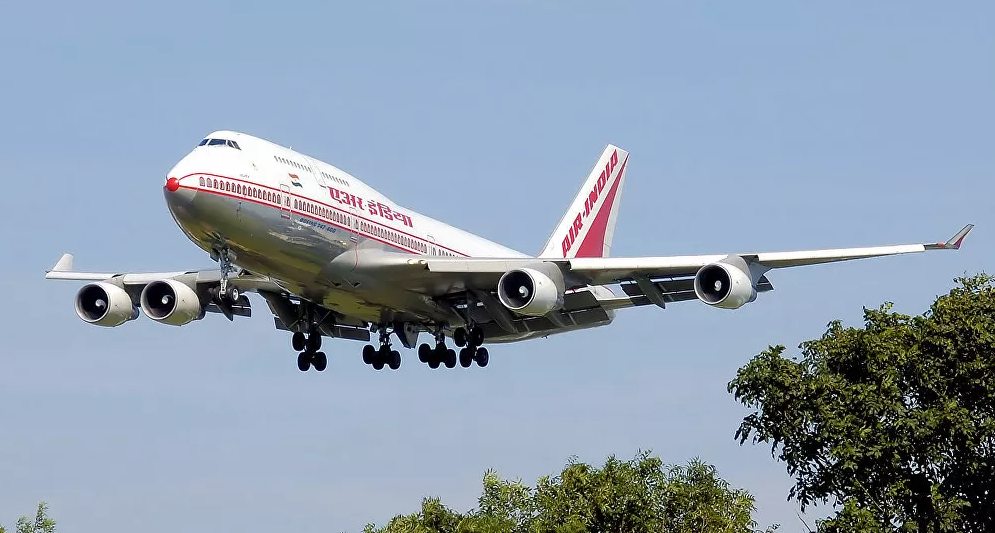 | India unofficially tells airlines to blocks Chinese entering the country Indian civil aviation authorities have informally communicated to all airlines flying into India to not board Chinese nationals. |
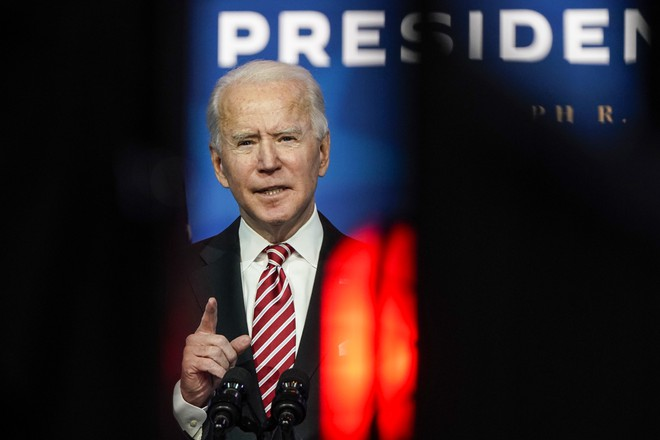 | Chinese expert predicts Biden's strategy coping with Beijing According to the China expert, the diplomatic strategy of the US President-elect Joe Biden will differ greatly from President Donald Trump, but that does not ... |
 | India to overtake Japan as world's 3rd biggest economy, China surpasses US 5 years earlier Centre for Economics and Business Research (CEBR) said in an annual report, that India will have surpassed Germany in terms of GDP by 2027 and ... |
Most read
Recommended
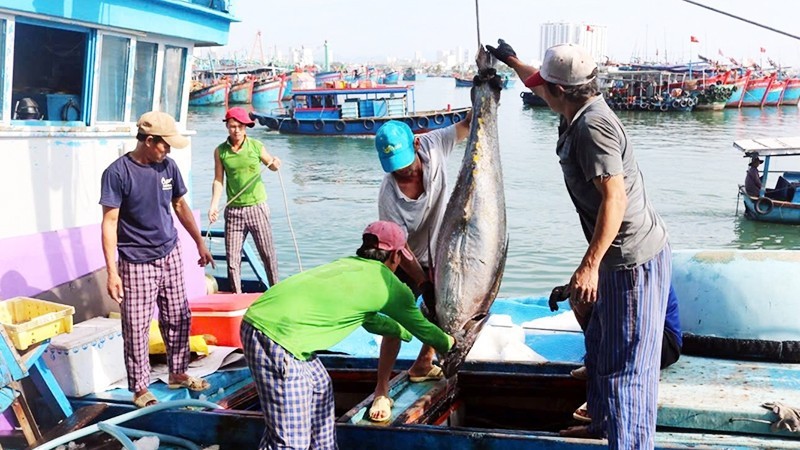 Seas and islands
Seas and islands
Gia Lai Determined to Remove IUU “Yellow Card” for Fisheries
 Seas and islands
Seas and islands
Fishermen Eagerly Set Sail at the Beginning of Spring
 Seas and islands
Seas and islands
Celebrating the Lunar New Year on Truong Sa Island
 Seas and islands
Seas and islands
Lam Dong Resolves 100% of Fishing Vessels Losing Monitoring Connection in IUU Crackdown
Popular article
 Seas and islands
Seas and islands
Tet Filled with Solidarity Between Army and People on Phu Quoc Island
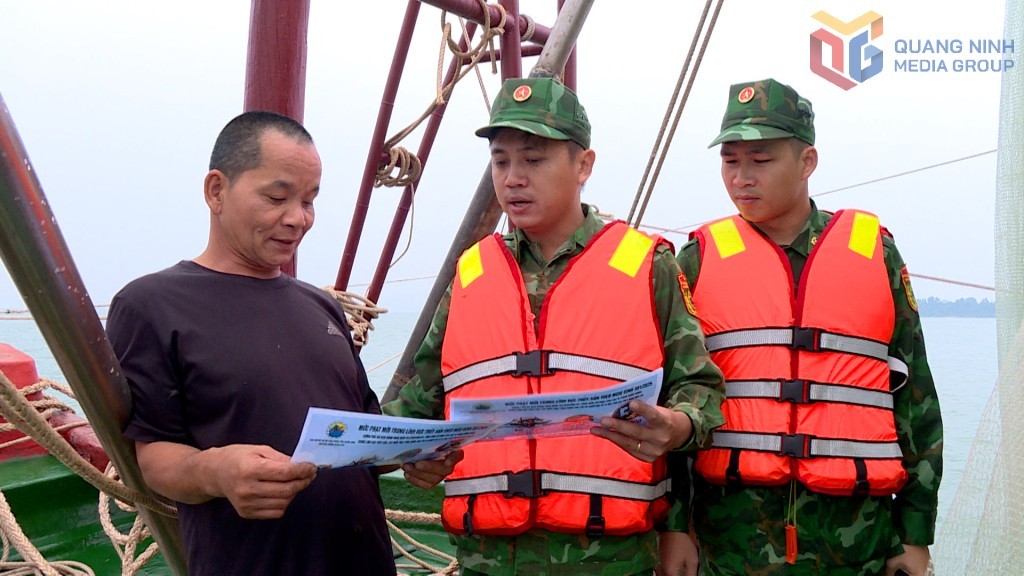 Seas and islands
Seas and islands
Quang Ninh Steps Up IUU Crackdown Toward Sustainable Fisheries
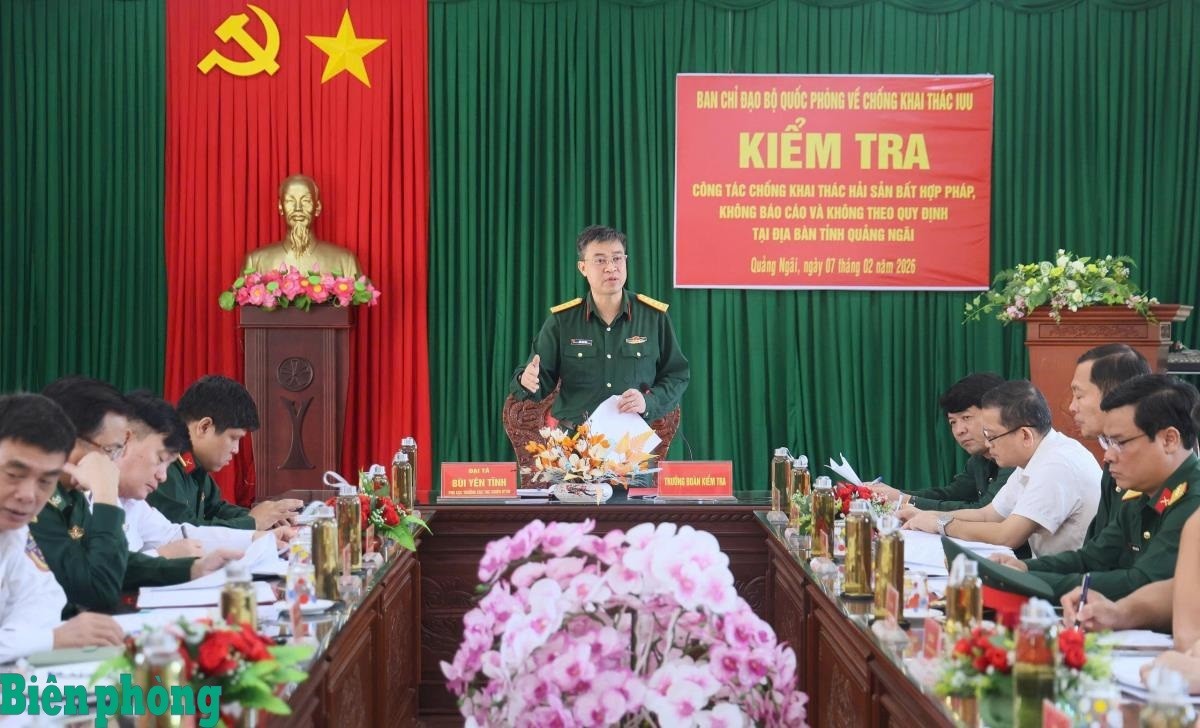 Seas and islands
Seas and islands
Defense Ministry Delegation Inspects IUU Prevention in Quang Ngai
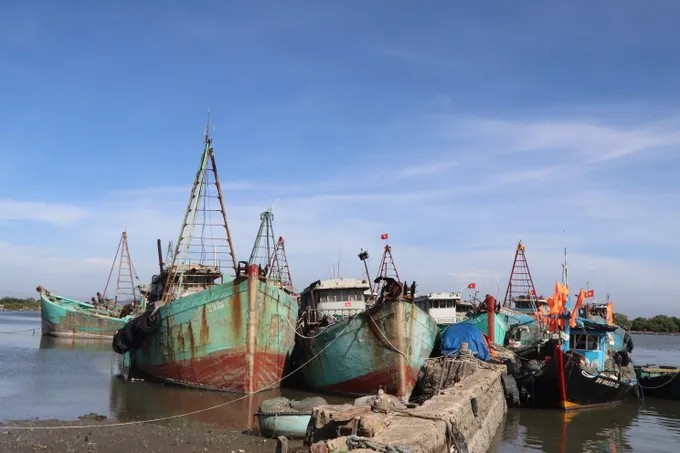 Seas and islands
Seas and islands

